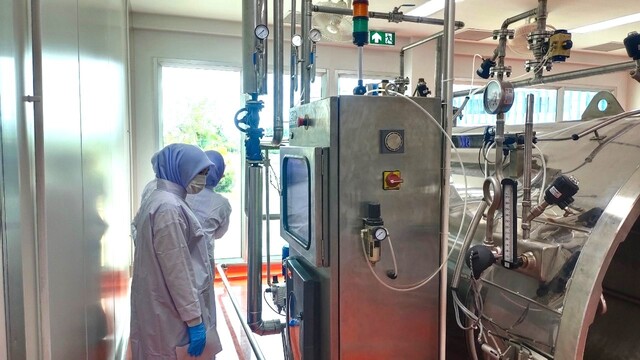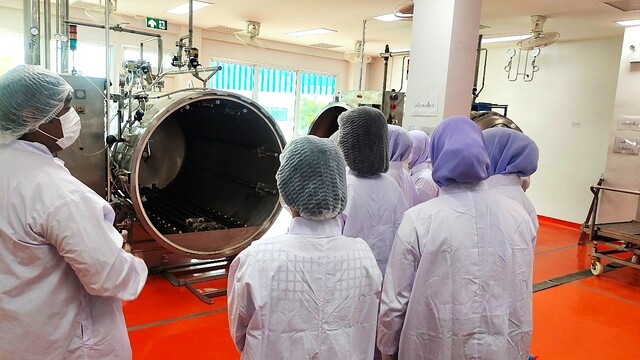Suan Dusit University (SDU), as one of Thailand’s leading higher education institutions in the fields of food, nutrition, and hospitality management, recognises the importance of sustainable food governance—particularly in relation to food sourced from aquatic ecosystems, such as fish, shrimp, crab, and other seafood products. To ensure that food utilised within the university—whether in teaching, research, or campus operations—is sustainably harvested and responsibly sourced, the university promulgated an institutional policy titled “Regulation of Suan Dusit University on the Management of the Food Processing Operation Project B.E. 2567 (2024)”, officially enacted on 28 June 2024.
This regulation establishes a comprehensive framework for the management of the Food Processing Operation Project, which oversees the university’s procurement, production, and utilisation of food ingredients, including those from aquatic sources. Its primary aim is to ensure that all food processing and consumption within the university aligns with the principles of quality assurance, food safety, resource efficiency, and sustainable utilisation of natural resources. It mandates that all food ingredients—particularly seafood and aquatic products—must originate from verified sustainable sources that do not contribute to overfishing or ecosystem degradation.

Under Chapter 1 of the regulation, the project is tasked with promoting innovation, research, and production practices in alignment with green production and circular economy principles. The policy emphasises the development of sustainable food systems, where academic activities in culinary arts and food technology integrate environmental consciousness into the selection and use of ingredients. This ensures that aquatic food used in the university’s facilities and teaching kitchens supports the broader goal of sustainable utilisation of aquatic ecosystems.

Chapters 2 and 3 outline the governance and management structure of the Food Processing Operation Project. The project is supervised by a Steering Committee responsible for setting institutional directions and ensuring compliance with sustainability standards. The committee’s duties include evaluating supply chains, verifying the quality and traceability of food ingredients, and promoting procurement from local and environmentally certified sources—especially fisheries and aquaculture operations that meet sustainability criteria. Through these mechanisms, SDU has embedded sustainability principles into its food policy and operational management.
Outcomes and Impacts:
- Environmental Impact: The policy ensures that seafood and aquatic ingredients used on campus are sourced from sustainable fisheries and aquaculture, reducing pressure on marine and freshwater ecosystems.
- Socioeconomic Impact: By promoting the use of sustainable local seafood products, the policy supports small-scale fishers and community-based aquaculture enterprises, contributing to local economic resilience.
- Educational Impact: The policy serves as a framework for integrating sustainability into academic instruction, particularly in food science, culinary arts, and nutrition programmes, reinforcing responsible consumption behaviours among students.
This regulation stands as direct evidence of SDU’s institutional commitment to sustainably managing food derived from aquatic ecosystems. It reflects the university’s proactive effort to align campus food systems with sustainable harvesting practices, while linking environmental stewardship, food security, and education. As such, Suan Dusit University exemplifies how higher education institutions can transform policy into tangible action, ensuring that the use of aquatic resources in education and campus operations contributes to the long-term conservation and sustainable utilisation of the oceans, seas, and marine life.
